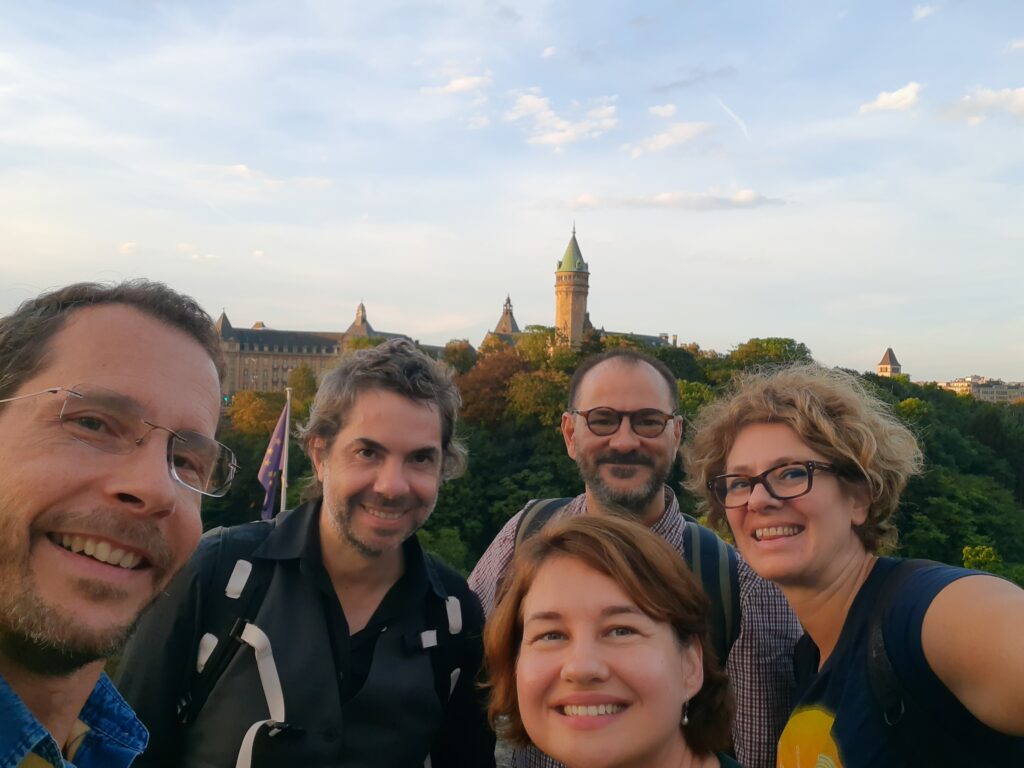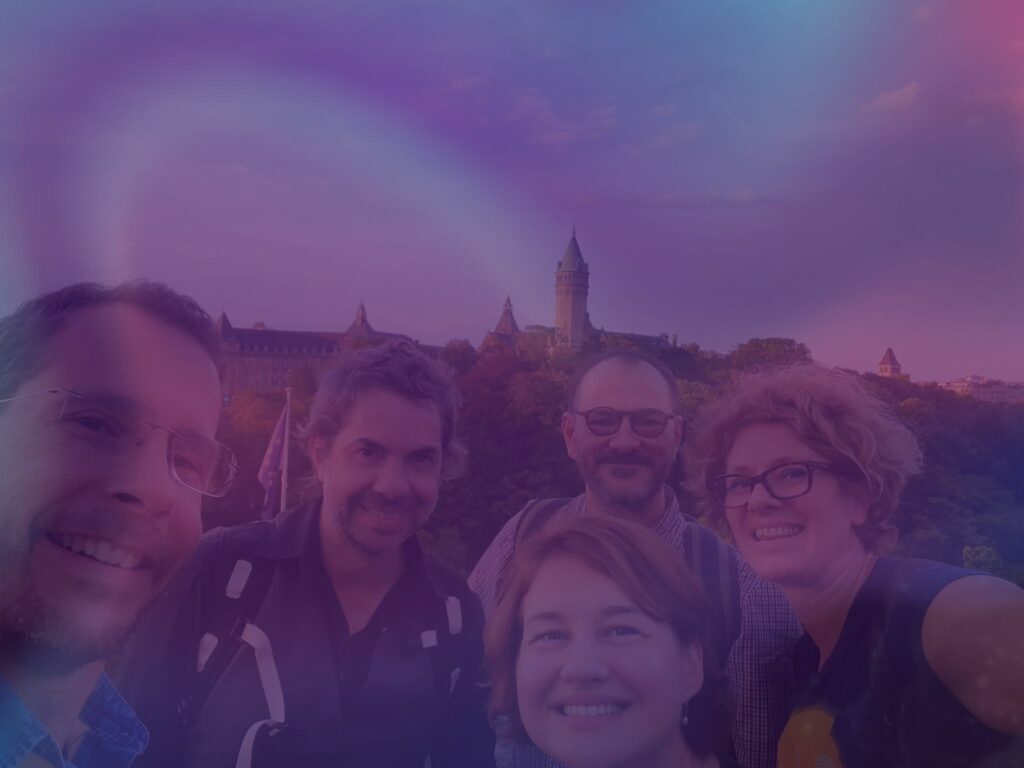The LITHME Computational Linguistics Working Group (WG1) organised in 2022 its first annual in-person workshop. The meeting took place on 5 and 6 September at the University of Luxembourg, Campus Belval, Esch-sur-Alzette, Luxembourg.
The workshop gathered a diverse group of experts from different LITHME working groups with an interest in computation to discuss the future likely impact of technology on language. The two-day workshop included eight talks on the state-of-the-art of language and technology: “Natural language programming for conversational robots. Case study of the French-German project COCOBOTS” by Olga Turcan; “Human language data for machine learning” by Ilan Kernerman; “On Leveraging Machine Translation for NLP Tasks” by Henrique Lopes Cardoso; “Challenges of language data in industry” by industry representatives Shohreh Haddadan and Katya Kamlovskaya; “Offensive language taxonomy (with a comment on bias)” by Barbara Lewandowska-Tomaszczyk; “PUNGA – platform on perseverance and revitalisation of Aroumanian/Vlach language in North Macedonia” by Marija Pendevska; “Grammar checking: at the crossroads of corpus linguistics, error analysis, computational linguistics and distance learning” by Rubén Chacón Beltrán; and “An ontology-based model for discourse and pragmatic annotation… and some other recent research results” by Antonio Pareja-Lora. The workshop participants were selected based on their proposed contribution to the outcomes of the workshop, and their presentations were complemented by a debate on a scientifically grounded outlook on the likely evolution of language and technology. The meeting reflected the wide, central and heterogeneous nature of this working group within LITHME. The workshop ended with a lively discussion of core concepts underlying computational linguistics, which will be integrated into forthcoming LITHME outputs. Stay tuned for updates!


